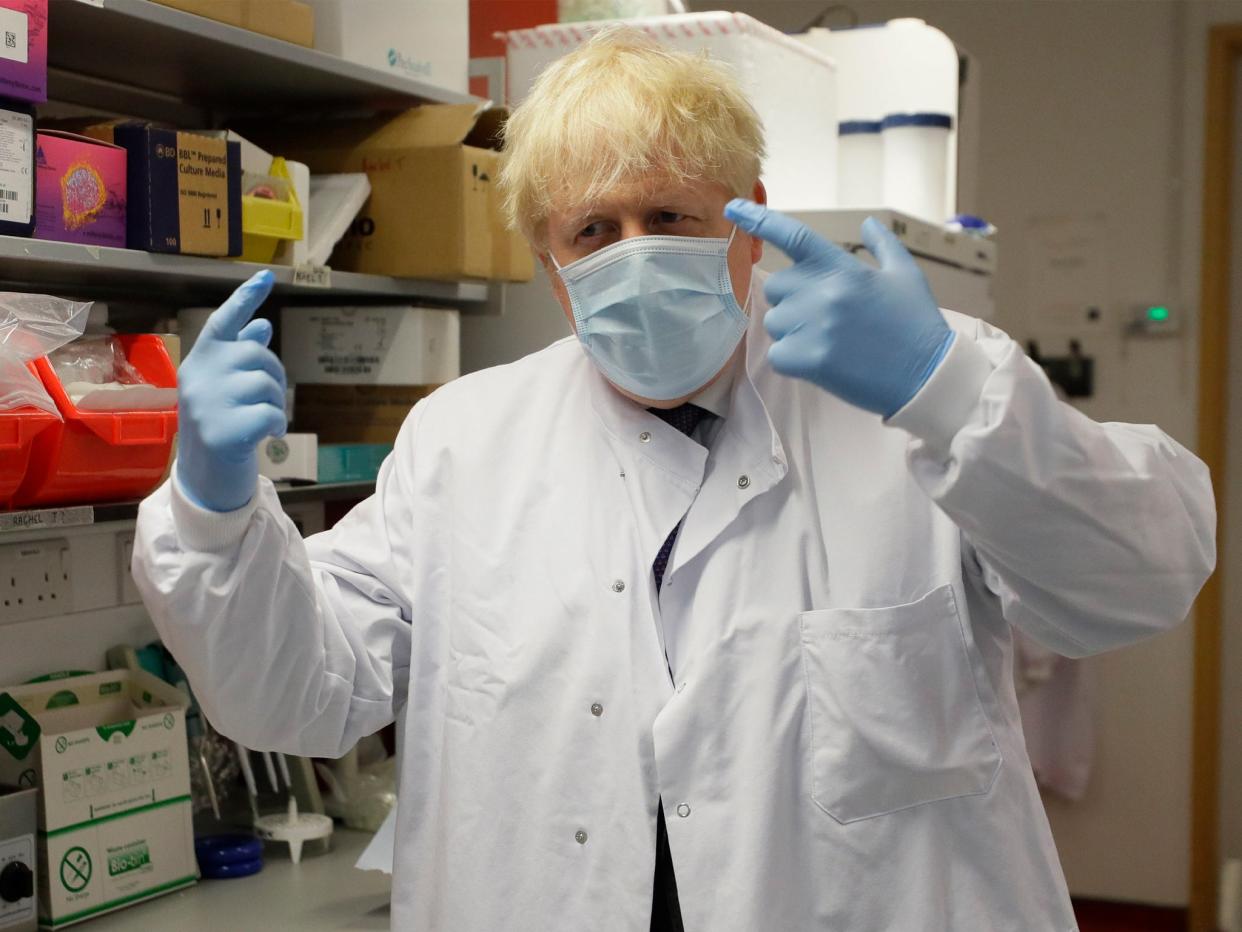Coronavirus: Early vaccine may just alleviate symptoms, scientists warn

A Covid-19 vaccine is unlikely to prevent people developing the virus and may only alleviate symptoms, British scientists say.
Researchers told ministers that the first vaccine that gains regulatory approval will only be partially effective.
A source informed The Times that the country must proceed with caution when the vaccine is rolled out, as early inoculations are unlikely to protect everyone.
They said: “It seems the most likely outcome in the short to medium term is to find a vaccine, or two doses of a vaccine, that reduces the severity of the symptoms.”
Visiting a vaccine manufacturing site in Oxfordshire on Tuesday, Boris Johnson said: “Brilliant scientists in Oxfordshire and around the UK are driving global efforts to develop a safe vaccine that works to defeat coronavirus.”
“If one proves successful, we need to be ready to distribute it to the British people as soon as possible.”
Chief scientific advisor Chris Whitty said on Monday that “science will in due course come [and] ride to our rescue”.
However, scientists have warned a vaccine will not be a “silver bullet” in tackling the virus, which is likely to continue to circulate.
While benefits of a vaccine include reducing the threat for high-risk individuals and lessening the risk of people falling seriously ill, the inoculation will not usher in a return to normal life.
Mr Whitty has said a vaccine will likely have a 40–60 per cent efficacy, comparable to a flu jab.
Meanwhile, the Oxford team developing a vaccine have set a target of 50 per cent protection.
Yet scientists say the vaccine is nonetheless a valuable tool if it cuts in half the risk of catching the virus.
Developers aim for the vaccine to be ready for the first half of next year.
Dr Charlie Weller, head of vaccines at the Wellcome Trust, said measures such as social distancing will need to continue as the vaccine is rolled out to help control the rate of infections.
“We need to manage everyone’s expectations on what these first frontrunners of vaccines can actually do,” Dr Weller told The Times.
It is thought that individuals will require an initial dose and a booster a month later. Some may need two entirely separate vaccines, depending on their immune system.
This week, it was revealed that British researchers intend to test vaccines on volunteers in a series of “challenge trials” early next year, which will involve healthy volunteers being injected with Covid.
The Financial Times reported volunteers would first be injected with a vaccine and later receive a challenge dose of covid.
Challenge trials have previously been used in vaccine tests for malaria, typhoid and flu, but unlike these, there is no proven treatment for covid.
Read more
Coronavirus vaccine to be ready globally in early 2021, Chinese company claims
Coronavirus vaccine: UK government signs deals for 90 million doses of two more experimental jabs
Chris Whitty and Patrick Vallance to issue stark warning to the public over coronavirus second wave


